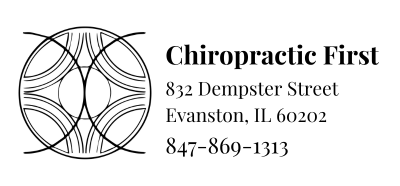On International Women’s Day
“We turn their problems into a crime.” -Dr Beth Richie at International Women’s Day
“It’s my knee that is the culprit.” -patient at Chiropractic First
As I listened to Dr. Richie speak, I was struck by how much the American response to race, gender and criminal justice mirrors our response to pain, disease and health care.
Dr. Richie gave an amazing lecture to kick off International Women’s Day. She spoke of our tendency, as a country, to put people in jail for behavior that is symptomatic of mental health diagnoses and substance abuse problems.
She spoke of “carceral feminism,” our tendency to address issues of violence against women and other symptoms of gender inequality, with incarceration and the prison system.
She spoke of racism and the problems created by expecting people of color to seek help from a criminal justice system that can treat them as perpetrators, rather than victims.
I heard her speak about a deep tendency we have as Americans to respond to problems with isolation and punishment. To react to disorder with aggression and authority.
This is reflected in our experiences of our own bodies. We treat the pain in our knee as a badly behaving body part. A part that it needs to be silenced and controlled. We can take an aggressive stance against the most vulnerable and misunderstood parts of our bodies.
We talk of “bad backs” and “fighting through the pain.” We distance ourselves from the problems of our body, as though they are not a part of us. We aspire to assert authoritarian control the parts of our body that are in the most need of compassionate help. We want to use force to make it fall in line.
Dr. Richie believes that racial and gender problems cannot be legislated and incarcerated away. Domestic violence laws have unquestionably made some women and children safe. However, they have not, nor will they, solve the incredibly complex problems underlying the fact that 25% of women will experience “severe violence” in an intimate relationship. One in Four.
She says, in reality, the laws have made some women less safe. When it comes to human relationships, it’s just not as simple or as easy as identifying the problem, isolating the perpetrator and applying punishment.
Likewise, healing is not always as easy as identifying the pain, isolating the disease and asserting authority over the body. There are times when that approach is needed. There are times when using antibiotics to kill bacteria can save a life. But when we over utilize that tendency to kill bacteria, we end up with everything from superbugs to chronic digestive syndromes.
Not all the patients of Chiropractic First agree with the political views espoused by Dr. Richie. You do not need to in order to be welcome or to heal at Chiropractic First.
But for the patients who want to play a role in reducing gender inequality, for the ones who feel called to address the racial disparities, I encourage you start engaging your body I the same way. Listen. Value inclusivity. Treat your ailing body as you treat our ailing communities—with compassion, tenderness and a desire to understand the systemic issues underlying the break down.
It might help you be more prepared to create the changes you want to make in the world.





No comments yet.